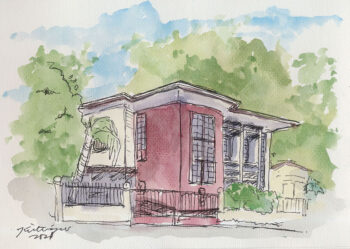GENERAL SANTOS CITY, April 14, 2015 – Cotabato Archbishop Orlando Cardinal Quevedo, O.M.I. convened the Friends of Peace at Asian Institute of Management in Makati City last April 6. The FOP is composed of peace advocates who want to continue helping establish and sustain peace in Mindanao. At no time other than now does Peace need help so badly; the construction of her edifice, the Bangsamoro, might be aborted or revised in the wake of the last January 25 Mamasapano tragic incident.
For 17 years starting from 1997, four Presidents had taken turns building confidence and talking peace with the Moro Islamic Liberation Front to understand the grievances of the Moros in order to make redress for the injustices and to provide means for them to realize their aspirations. The understanding, redress and means drafted as the Bangsamoro Basic Law in the fourth year of the Aquino III presidency has been pending in the Congress for enactment into the Law that will establish the Edifice of Peace – the Bangsamoro.
However, the Mamasapano incident so enraged the members of the Congress that with their anti-Moro biases and prejudices blinding them they see Draft BBL (House Bill 4994 and Senate Bill 2408) as constitutionally infirmed and view the Moro Islamic Liberation Front with distrust. They contemptuously accuse the Government peace negotiating panel of being the MILF mouthpiece.
The House Ad Hoc Committee on BBL has already deleted HB 4994 provisions deemed unconstitutional. The impression was that the Bangsamoro was being stripped of genuine political and economic autonomy. More would be deleted; the House vowed to pass the BBL Congress-version and taunted the Palace and MILF to “take it or leave it”. In the Senate, a bill was reported as being drafted “to replace the proposed BBL” (Philippine Daily Inquirer, April 7, 2015: Cayetano proposes alternatives to BBL).
If ever the watered-down BBL or, instead, an alternative autonomy law is passed by June 11, 2015 or later, neither will properly address the Bangsamoro Problem. Unless MILF is only bluffing, they will reject this unapt BBL; the Moros will be disenchanted the more. The ensuing crisis must be avoided.
Meaningful BBL
At the FOP round-table discussion, Fr. Joel E. Tabora, S.J., president of Ateneo de Davao University said, “For as long as there is hope that a meaningful BBL can be passed, we should focus on that. Find a way to convince the majority of congressmen to pass meaningful BBL.” This is a very sound suggestion for the organization to focus on as its immediate objective. And it raises challenging questions.
“Is there hope?” and “Is there a way?” are no-option questions. If the peace advocates of FOP see no hope or way their convening would become meaningless. However, the “hope” and the “way” should relate to the basic question, “What is meaningful BBL?”
A meaningful BBL is one that will establish Bangsamoro, the political entity envisioned to restore justice to the Moros and the Indigenous People and secure for them peace and prosperity. That vision is what Draft BBL is – HB 4994 and SB 2408; only by enacting it into law essentially intact will there be a meaningful BBL to guide the mission.
Draft BBL provides for a well-planned autonomy endowed with power-sharing, wealth-sharing, revenue resources and calibrated assistance from the Central Government. This was drafted from agreements negotiated contentiously but studied diligently with candor, good-will, and full understanding of the Moro problems and aspirations in the light of the Philippine Constitution and laws through 17 years under four Presidents
Draft BBL, in its Article I, Section 3, states that the purpose of the Basic Law is “… to establish political entity, provide for its basic structure of governance in recognition of the justness and legitimacy of the cause of the Bangsamoro people and their aspiration to chart their political future through a democratic process that will secure their identity and posterity and allow for meaningful self-governance.”
To flesh out this purpose, Draft BBL provides for meaningful and genuine autonomy – defining the political powers and economic resources of the Bangsamoro, its territory and the mechanism and modalities to carry out its vision-mission.
First: Article III delineates the territory of Bangsamoro composed of the five provinces of the Autonomous Region of Muslim Mindanao and their component cities with some geographical areas contiguous with them, air space above them and the sea within defined limits from their shores; Article IV enumerates its general principles and policies of government.
Second: Article V limits the powers of government enumerating what Bangsamoro cannot do (powers reserved for the Central Government), what it can do together with the Central Government (powers shared), and, what it can do alone (exclusive prowess).
Third: Article VI.1.2.3.4 defines the asymmetric relation of the Bangsamoro with the Central Government; Article VII, the parliamentary-ministerial form of government.
Fourth: Article IV, Section 1 enumerates 13 basic rights in addition to those already enjoyed by the Moros and other inhabitants of the Bangsamoro; the subsequent sections elucidate provisions on human rights, property rights, transitional justice mechanisms, indigenous people’s rights, customary rights and traditions, and rights to social justice, education, culture, arts and sports.
Fifth: Sections 1 to 22 of Article IX are on the Shar’iah as the core the Bangsamoro justice system; the other sections are on other aspects of the justice system.
Sixth: Article XI focuses on the creation of the Bangsamoro Police that would make the Bangsamoro primarily responsible for its public order and safety; however, defense and security “shall be the responsibility of the Central” through the military or Armed Forces of the Philippines.
Seventh: Article XII provides the sources and management of fiscal autonomy of the Bangsamoro; Article XIII, the policies for the development of the Bangsamoro economy and patrimony; Article XIV, the funding support from the Central Government. These three articles are the keys to the Bangsamoro economic autonomy.
Eight: Article XVI provides the creation of the Bangsamoro Transition Authority that will create and operate mechanisms and modalities that will prepare the establishment Bangsamoro as a parliamentary-ministerial autonomy — the transitory government that will absorb and change the Autonomous Region in Muslim Mindanao into Bangsamoro.
Imperiled
A good look at the outline summary of the Draft will tell that it will provide a meaningful BBL for Bangsamoro. But the meaningfulness can be diluted, diminished or lost as the Draft goes through the congressional mill. Even if the Congress passes a meaningful BBL, the meaningfulness will be lost with improper transition especially due to limited time and other constraints. As stated at the outset, the AHCBBL had already deleted provisions it deemed unconstitutional.
As reported by MindaNews (April 11, 2015: Rodriguez: BBL okay assured, but for eight provisions) and the Philippine Star (April 7, 2015: House to remove 8 BBL provisions), five provisions deemed unconstitutional have been deleted and three to be deleted. The committee will meet on April 23 to finalize its report; the deletion of more provisions cannot be ruled out.
ACHBB Chair Rufus Rodriguez said:
The five provisions already deleted are those seeking to create separate (1) Commission on Audit, (2) Commission on Elections, (3) Civil Service Commission, (4) Commission on Human Rights and (5) Office of the Ombudsman.
To be deleted are the sections (6) requiring the President to coordinate military operations with the chief minister of the Bangsamoro region; (7) empowering the chief minister to have “control and supervision” over police forces in the region; and (8) allowing areas outside the proposed Bangsamoro region to join if ten percent of the residents petition for inclusion due to the opposition of Mindanao congressmen, governors and mayors.
The first seven are more institutional than constitutional issues and the eighth is political; they are not crippling. Unless more deletions cripple the Bangsamoro fiscal and political autonomy, the prospective House version of the BBL would still be meaningful. It’s most encouraging that Rodriguez has guaranteed fiscal autonomy for Bangsamoro and assured its parliamentary-ministerial structure of government is not against the Constitution,
Unless Rodriguez is dissembling, what he told MindaNews and The Philippine Star means Draft BBL in the House version is practically intact, not the “take-it-or-leave-it” BBL much earlier reported in the media.
However, prospects in the Senate are most worrisome. Some senators are very vocal not only against the constitutionality of the structure of government of Bangsamoro and its asymmetric relation with the Central Government but also that of the peace negotiation. Others are questioning the legality and propriety of the fiscal provisions.
It has become evident that anti-Moro bias and prejudice stoked by the Mamasapano incident have possessed leading senators. This has distracted their focus from the BBL and the direction of the just resumed committee hearing. With time running out, can the Senate pass its version of the BBL by June 11?
(To Be Continued)
(Comment” is Mr. Patricio P. Diaz’ column for MindaViews, the opinion section of MindaNews. The Titus Brandsma Media Awards honored Mr. Diaz with a “Lifetime Achievement Award” for his “commitment to education and public information to Mindanawons as Journalist, Educator and Peace Advocate.” You can reach him at patponcediaz@yahoo.com.)







